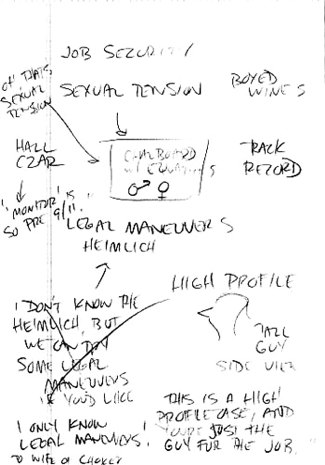I recently had a student email me some questions about creativity for a class. I get a fair amount of this, and normally I don’t respond, but for some reason this one got through.
Anyway, for what it’s worth, here’s the creativity Q & A:
1. How do you define creativity?
Working with what’s available to make something new and unique.
2. Do you believe that each person has the capacity to be creative? Why?
Certainly. Not everyone is a painter or singer, but I think everyone has the ability and the desire to create in their own way. I think deep down we all want to say ‘This is me. I made this.’
3. How did you find your creative niche?
It sort of found me. I love to draw, and I love being funny. I’m also a fairly adept musician, and I floundered at that for years, but in the end cartooning just sort of manifested itself.
4. Do you think creativity is innate or learned? Explain.
Both. It’s one thing to have that flash of wonderful inspiration, it’s quite another to shape that into something meaningful or useful, or to come up with something on a deadline.
5. Who or what experiences have inspired your work?
Cartoonists Peter Arno, Charles Schulz & Bill Watterson, comedians Bill Cosby, George Carlin and David Letterman, a few wonderful teachers along the way, and, of course, my family.
6. Have you always wanted to do what you are doing? If not, what made you decide to start?
Yes. I started tracing the Sunday comics pretty early on. I’m lucky that I had some innate abilities, and people along the way to point that out.
7. Does spirituality and culture play a role in your creativity? Explain.
Culture plays a huge role in what I do. To be a humorist is to be an observer. I subscribe to a ton of magazines, watch a fair amount of TV and surf the internet a lot. You need to be informed to be funny.
8. How important is education to your creative process?
A good sound liberal education is the base of what I do. To be a cartoonist you have to know a little about a lot.
9. How do you deal with creativity blocks?
Often you can push through them through sheer force of will. Other times you just have to wait it out. There’s no set procedure, but after a while you learn a lot of little tricks.
10. Do you believe that it is important to be accepted by others as being creative or is just doing what you love to do enough to justify your work? Explain.
I think we all want to be accepted and acknowledged for our creations, but I don’t believe it’s a necessary part of being creative. If you want to be a singer, sing. Want to be a cartoonist? Draw cartoons. Being a professional is another layer entirely.
I hope I come across well. I tried to be substantive and brief without getting too self-helpy.
Again, normally I just don’t respond to these because, honestly, there’s about a million more creative and successful people than me, but I thought these were fairly well thought out questions
So, there you go. Any thoughts?

 …having to pay someone to straighten out your QuickBooks after incorporating, trying to figure out why your email is getting waylayed for days, and learning you can’t do everything by yourself anymore.
…having to pay someone to straighten out your QuickBooks after incorporating, trying to figure out why your email is getting waylayed for days, and learning you can’t do everything by yourself anymore.

 Got this in my email the other day:
Got this in my email the other day: